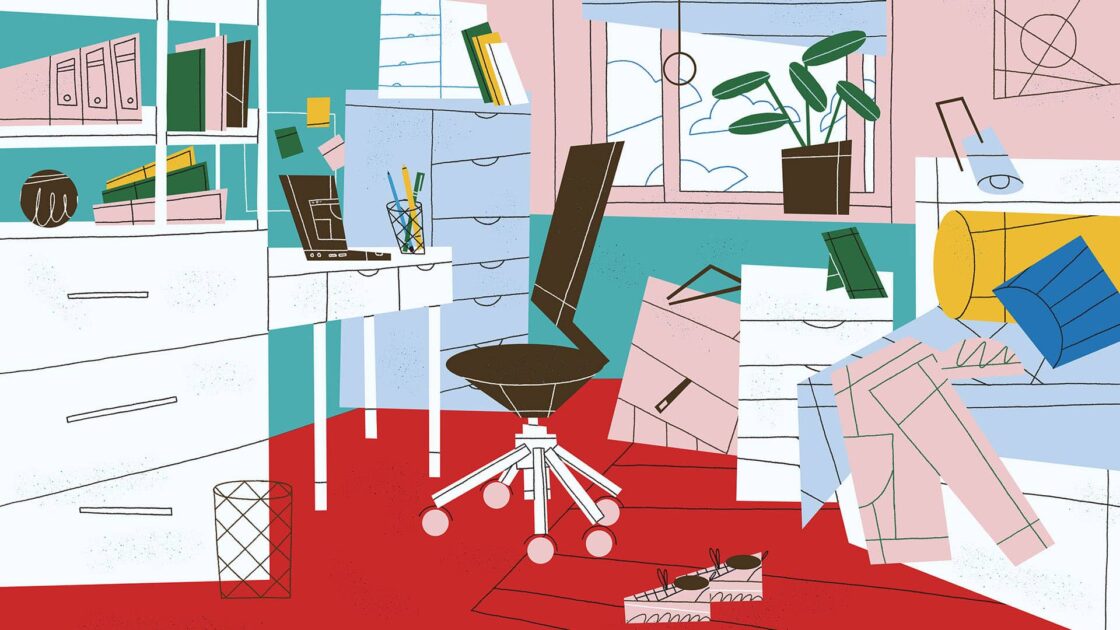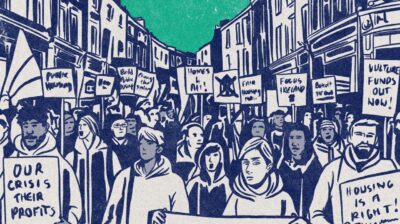What should I check before renting a room?
Moving is a big step so make sure it is to the right place

Moving out whether for the first time or to a new place can be a big step so it is important that you are happy with your accommodation. To make sure you find somewhere to rent which will suit your needs, it is important to ask your landlord questions before you move in, and to make sure you are happy with the standard of the accommodation before you sign your lease.
Finding rental accommodation
When searching for somewhere to rent, it is important to be aware of your rights and what to expect from potential landlords.
Recognising housing discrimination
A potential landlord is not allowed to discriminate against you (i.e. not let to you) based on any of the following:
- Your gender
- Your civil status (whether you live with/are married to someone)
- Your family status
- Your sexual orientation
- Your religion
- Your age
- Your race
- If you are a member of the Traveller community
- If you have a disability
- If you receive rent supplement or housing assistance
Sometimes ads will have things like “rent supplement not accepted” or “professionals only”. This counts as discrimination and is not acceptable. If you feel you have been discriminated against while you are seeking a rental property, you should contact the Irish Human Rights and Equality Commission for more information.
Providing information to a potential landlord
Your prospective landlord may request that you provide certain information. You should only show them these things if they are offering you a tenancy and you want to take it, and not before. Sometimes, a landlord will ask to see:
- Your PPS number (for the registration of your tenancy)
- A reference from a previous landlord or employer
- A photo ID
- Evidence of residency
- A bank statement or payslips
If you are unsure why they are asking you for the information, you can ask, and you don’t have to show them anything you don’t want to.
Dealing with letting agents
Frequently, landlords rent to tenants through a third-party letting agent. These agents are required by law to carry licenses. You should never deal with an unlicensed letting agent as you lose all protection if things go wrong.
Ensure the agent has a license at the Property Services Regulatory Authority website. Get your landlord’s full details anyway, as if you have a problem you will need them.
Renting from a tenant or sharing with landlord
If you are sharing accommodation with a landlord or renting or subletting a room from an existing tenant, then this is a licence arrangement and you are considered a ‘licensee’ rather than a tenant. This means you do not have the same rights as a regular tenant, and normal landlord and tenant laws will not apply. It is important to be aware of this before agreeing to a licence arrangement. Find out more about license arrangements from Threshold and Citizens Information.
Viewing the property
When it comes to finding a place to live, location and the cost of rent are only two things that you need to consider for renting. It is also important that the accommodation offers a safe and healthy environment to live in. A landlord is responsible for ensuring that the rental property is in good condition. By law, they must maintain the exterior and interior of a property and carry out any necessary repairs to ensure the property meets certain basic minimum standards.
Before renting accommodation, here are some things to ask:
- Do the windows open?
- Are there any signs of dampness such as mould?
- Are all appliances in good working order?
- What security is available (such as window locks, burglar alarm)?
- Is a smoke detector provided and is it functioning?
- Is there a fire alarm, fire extinguishers and fire escape routes?
- What are the fire evacuation procedures?
- Are the cooker and fridge clean and in working order?
- What sort of condition is the bathroom in?
- Is the home well-ventilated?
- Is the heating working?
Make sure that the landlord gives you a list of what is in the flat and anything that needs to be repaired before you move in. This ensures that you will not be asked to pay for anything already broken or damaged when your lease is up.
Read more information on minimum standards in rented accommodation.
Watching out for rent fraud
Renting a privately-owned property can be risky. Some people can fall victim to a rent fraud, where they hand over a deposit or personal information and then never get to move in. There are some things you can do to ensure that a tenancy is genuine:
- Never agree to rent a property without viewing it
- Make sure you are satisfied with the lease and the terms and conditions and if you are not, or feel suspicious, don’t sign it
- Try not to use cash, and insist on a proper receipt for your deposit
- Meet your landlord at the property for that transaction, and check that the keys they give you work
- Make sure you have the proper contact details for your new landlord (full name, phone, address, and email address if possible)
- If you have any doubts whatsoever, don’t sign the lease
- If you suspect you have been or could be the victim of a rent fraud, contact the Gardaí
Signing a lease agreement
Before signing a lease, make sure you know exactly what you are signing up for.
Understand the terms of your lease
A lease is an agreement between you and your landlord that designates how long you can live there, payments, and other terms and conditions, such as who is responsible for damages, etc. Legally, your landlord doesn’t have to offer you a lease, but it is usually a good idea.
A lease is legally-binding, and you can’t get out of it (or your landlord can’t give you notice) unless:
- There is a clause in the lease that allows it
- You (or your landlord) violate the law
- Both you and your landlord agree to end the lease.
The terms of the lease cannot be changed during the lease, unless, again, you and your landlord agree. However, you can request to sublet to another person during this time, and must make the arrangements yourself for another tenant. If you break the lease, your landlord can’t keep or deduct from your deposit. However, they may try to cover costs for the money they spend seeking a new tenant. If this is the case, ask to see the evidence of the costs.
If you are renting a room in a house with other people, make sure to ask questions like:
- What happens if one flatmate leaves?
- Will we have to pay their rent?
- Who will be responsible for finding a new person?
When your lease is nearly up, you should inform your landlord about whether you’d like to stay or go in writing at least one month before the lease expires.
Always read the lease very carefully, ask questions and get a second opinion on it if you can. If you think the lease is unfair in some way or violates the law, you can contact Threshold for advice.
Only sign a lease or contract for the length of time you are planning on renting the property for. An academic year is different to a calendar year so, if you only want to rent while you are studying, make sure the dates on any lease are September to May and not 12 months.
Paying a deposit
Deposits are usually the same amount as the first month’s rent so it is important to understand what your deposit goes towards.
- Ask your landlord how much is the deposit and if you need to pay rent in advance
- Get a receipt for any money paid at the start
- Find out what are the conditions for getting your deposit back
- Take pictures of the room(s) for potential damage when you move in so you don’t get charged for it when you leave
Know your landlord’s responsibilities
Once you sign a lease, there are certain things that your landlord is legally obliged to do.
Registering your tenancy
Your landlord is required by law to register your tenancy with the Residential Tenancies Board (RTB) within a month from the time you move in. In order to register your tenancy, they may need certain details from you, such as your PPS number and identification.
If they do not register your tenancy, they will not be able to refer disputes to the board. However, as the tenant, you will still be able to. You can check if your tenancy is registered on the Residential Tenancies Board website, and you can also report if you are not registered.
Keeping a rent book
Your landlord is also required to keep a rent book or other document, such as a lease, which you keep.
- The document must have records and dates of every payment, deposit, etc. that you have made
- It should also show the terms and conditions of the lease, and both your and your landlord’s complete contact information
- When you pay your rent to the landlord in person, it should be recorded in the rent book
- Alternatively, any receipts that you receive for your payments should show the amount, the date, and the purpose of the payment (e.g. “rent”)
- If you pay another way, for example through a direct-deposit method, your landlord must record it in the rent book or provide you with a receipt within three months of the payment
If your landlord refuses to provide you with a rent book or to show you other documentation, first inform him or her that they are legally required to do so. If they do not comply, you can make a complaint to the Residential Tenancies Board.
Additional costs when renting accommodation
Inevitably, there will be some costs associated with renting accommodation that you will be responsible for. Sometimes, these services will be included in the rent, but it’s up to you to read the lease to see what you’re paying for. Here are some common ones:
Gas and electricity
While it’s your landlord’s job to ensure that the gas and electric are safe and fully maintained, it could be your job to pay for the services. You can shop around for a good value, and make sure you know what to do at the end of your tenancy so you don’t get stuck with the bill for the next person.
Oil
Usually it is the tenant’s responsibility to fill up the oil tank if the property heats with oil. You have to be careful not to let it go below the minimum, and you should tell your landlord immediately if there are any problems with the tank. To keep this expense low, it may help to fill up the tank during the summer off-season, when oil is cheaper.
Refuse charges
Once again, your landlord must provide you with access to safe (pest-proof) places to store your trash in. Again, you can shop around for the best or best-budget providers, and you can also recycle and use organic waste bins to lower costs.
TV license
If there is a TV in your rental property, you will still be responsible for ensuring that you have a TV license in order to use it.
Internet
If there is internet available to you in your rental property, make sure it works before you move in, or if it doesn’t or if there is no internet installed, check with your landlord if they will allow you to improve or install it before you move in.
Insure your valuable belongings
It is a good idea to get your valuables insured if you are renting in a new home. Your landlord’s insurance won’t cover your belongings were something to be damaged or the house broken into.
Need more information, advice or guidance?
We offer information, advice and guidance about the issues that matter to you. Our online Youth Information Chat service is for 16 to 25 year olds and is available Monday to Friday, 4pm to 8pm (excluding Bank Holidays).






